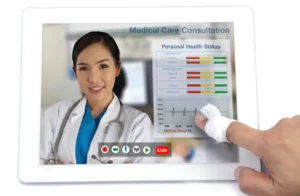
Apps and Tools for Modern Caregivers
Caregiving is a demanding and often overwhelming responsibility. For many, it means balancing multiple tasks, providing emotional support, and managing complex medical or daily needs. As caregiving responsibilities increase, so does the need for effective solutions that can simplify tasks, streamline communication, and ensure the well-being of both the caregiver and the person receiving care.
Thankfully, technology has provided a powerful ally for modern caregivers through a variety of apps and tools designed to provide assistance, relieve stress, and empower caregivers to do their best work.
The Role of Technology in Caregiving
In today’s digital age, caregiver apps and caregiver tools are revolutionising the caregiving landscape. These digital caregiver solutions provide caregivers with the resources they need to manage their day-to-day tasks more effectively, improve communication with family members and healthcare providers, and ensure they are offering the highest quality care. Whether you’re a family caregiver or a professional, technology has something to offer that can make caregiving easier and less stressful.

Key Benefits of Caregiver Apps and Tools
One of the biggest challenges caregivers face is staying organised. With multiple responsibilities, it can be hard to track appointments, medication schedules, and daily care tasks. This is where caregiver scheduling apps come into play. These apps allow caregivers to organise daily routines, set reminders for medications, and manage appointments. Many apps also offer customizable features that allow caregivers to adapt them to the specific needs of the person they are caring for. With everything in one place, caregiver management tools help reduce the mental clutter and allow caregivers to focus on the care itself.
Caregiver medication management apps are another vital tool. These apps help caregivers track medications, dosages, and schedules to prevent errors. With features like automatic reminders and medication logs, they ensure that medications are taken on time and as prescribed. This type of caregiver technology helps reduce the risk of medication mistakes, which can be dangerous for both caregivers and their loved ones.
Stress Relief and Wellness Support
Caregiving can take a significant toll on a caregiver’s mental and physical health.
Caregiver wellness apps are designed to address this issue by providing tools for stress management, relaxation, and self-care. Apps dedicated to caregiver stress management often offer guided meditation, breathing exercises, and mindfulness practices to help caregivers manage stress and maintain emotional balance. These apps help caregivers understand the importance of self-care and ensure they take time for their own health.
Caregiver wellness apps can also monitor sleep patterns, physical activity, and even offer nutrition advice. Many caregivers neglect their own health while caring for others, but these tools provide reminders to take breaks, exercise, and get enough rest, which ultimately improves the caregiver’s well-being.
Remote Caregiving and Communication Tools
Technology has also made remote caregiving easier. Apps that support telehealth allow caregivers to consult with doctors and healthcare providers without leaving home. This is particularly beneficial for caregivers who may not have easy access to transportation or live in rural areas. Telehealth for caregivers makes it easier to monitor health conditions, adjust medications, and have consultations with specialists through virtual appointments.
Additionally, caregiver communication tools help caregivers stay in touch with family members, medical teams, and others involved in the care process. These tools are invaluable for managing care teams and ensuring that everyone is on the same page. Some platforms even allow family members to access updates on the person receiving care, making it easier for them to stay involved from a distance.
Empowering Caregivers with Education and Support
Caregiver education apps are another essential tool for modern caregivers. These apps provide valuable resources, tutorials, and advice on various caregiving tasks, from managing chronic conditions to providing emotional support. With access to caregiver guidance at their fingertips, caregivers can quickly find solutions to common challenges and expand their knowledge of caregiving.
In addition to education, caregiver support platforms connect caregivers with virtual communities. These platforms allow caregivers to share experiences, seek advice, and offer emotional support to others who understand their struggles. Online caregiver communities can provide a sense of belonging, reducing the isolation many caregivers feel.
Smart Home Technology and Family Assistance
Smart home devices are also transforming the caregiving landscape. From smart home tools for caregivers that can automate daily tasks to family caregiver apps that help coordinate schedules and share updates, the integration of smart technology makes caregiving easier. These tools not only help manage care but also provide peace of mind by allowing family members to monitor care remotely.
Additionally, caregiver assistance programs that incorporate technology offer further support, including access to resources, financial assistance, and community programs. These tools help caregivers navigate the complexities of their role, ensuring they have the right support at every stage of the caregiving journey.
Conclusion
The integration of technology into caregiving has been a game-changer for modern caregivers in Singapore. From managing medications to offering emotional support and enhancing communication, caregiver apps and caregiver tools provide practical solutions that make caregiving easier and more efficient. By harnessing technology, caregivers can reduce stress, improve care, and take better care of themselves.
With the right tools, caregivers can navigate their responsibilities with confidence and ensure their well-being and the well-being of those they care for. As technology continues to evolve, it will undoubtedly offer even more innovative solutions to support caregivers in their essential roles.



